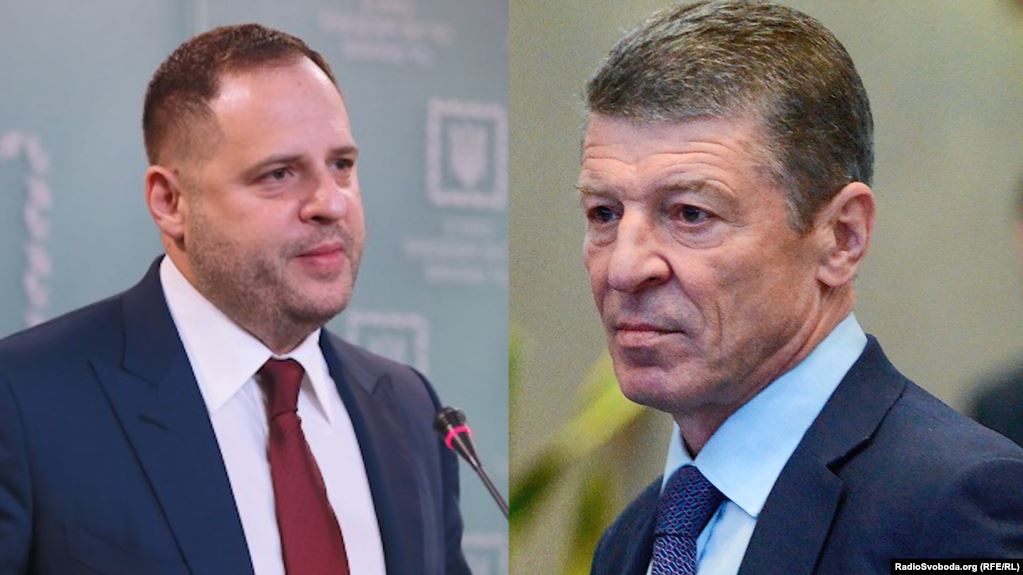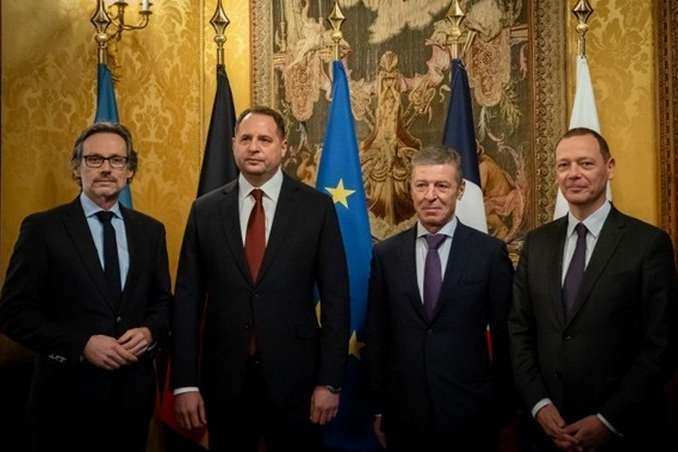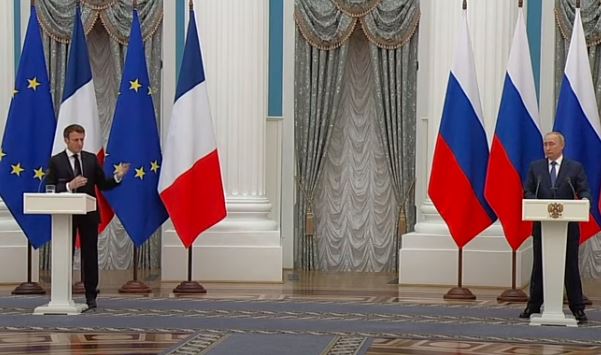On 26 January, representatives of the Normandy format called to negotiate a peace settlement in Ukraine met in Paris, after a long break.
Andrii Yermak, Head of the President’s Office, represented Ukraine; Dmitry Kozak, Deputy Head of Presidential Administration represented Russia; Jens Plotner, foreign and security policy advisor to the Chancellor – Germany; and Emmanuel Bonne, Presidential diplomatic advisor – France.
https://twitter.com/AndriyYermak/status/1486275137871699975?xxx
The closed meeting lasted more than eight hours, three times as long as it was planned. In a briefing, Mr Yermak referred to the summit as “reanimation of the Normandy format”:
“The fact that the format renewed its work is a very positive signal. Today, a very meaningful and difficult discussion took place. [It was] an audit of our status quo – the audit of the implementation of both the Minsk Agreements and Agreements of leaders of the Normandy format dated 2019.”
As a result of the meeting, the parties concluded a final communique, the first document of this format since the last Normandy Format’s meeting on 9 December 2019 in Paris.
Speaking to reporters after the meeting, Andrii Yermak noted that in his view, the main accomplishment of the meeting is an agreement to continue the ceasefire regime between the Luhansk and Donetsk “people’s republics,” two Russian-run proxy statelets in Donbas, and the Ukrainian army.
As Mr. Yermak said, divergencies between sides exist but a resolve to find a resolution exists:
“The parties absolutely openly declared that there are many differences between Ukraine and Russia concerning the Minsk agreements, but a will to work on the differences exists.”
The states seek dialogue. According to the Head of the President’s Office, the next meeting of the Normandy Format leaders will take place in two weeks in Berlin.
In the opinion of Mariia Zolkina, an analyst at Ukrainian independent think tank Ilko Kucheriv Democratic Initiatives Foundation (DIF), the talks did not bring any tangible results and the communique was purely declarative.
According to Ms. Zolkina, the only concrete result of the talks is a decision to have the next meeting in two-weeks time. That is, she believes, because of Russia’s goal for Ukraine to engage in negotiations with the self-proclaimed illegal republics of Donbas.
But Ukraine’s position is firm. Earlier, Mr. Yermak commented for RBC Ukraine that Ukraine will never directly negotiate with separatists in Donbas:
“The position of Ukraine announced many times on different levels is unchanging, it complies with Ukraine’s national interests. No direct negotiations with separatists have taken place before, and will never happen.”
And this announcement, according to Mariia Zolkina, is “the safest outcome of the meeting” for Ukraine.
As Ms. Zolkina argues, the Normandy Format negotiations will largely depend on the US-Russia talks that failed to achieve results in Geneva in early January but continue today. And these negotiations have high stakes as well, because NATO expansion, collective security, and Russia’s ambitions to divide Europe into spheres of influence are on the line.
And vice versa, should the collective West in the face of the US and Russia find a common ground, Ukraine may have to agree to an unfavorable compromise with Putin in the Normandy talks.
This is what Kyiv actually did before the Paris meeting.
For the Normandy talks to take place, Moscow demanded Kyiv recall a bill tabled in the parliament on reintegrating the occupied territories, which provides for the de-occupation of uncontrolled parts of Ukraine and automatic disbanding of any occupation authorities.
That is, the mechanism of the bill rules out any possibility of dialogue with the Russian-backed “separatists” and the coexistence of self-proclaimed and Ukrainian institutions.
It appears that, at the request of the Kremlin, official Kyiv withdrew the bill as a matter of urgency.
“This was Ukraine’s defeat even before the meeting – because Kyiv not only complied with Russia’s demand but also proved that it was ready to change the legislative process under Russian influence, despite the fact that there was no chance to get any concessions from Russia,” Zolkina said.
As a result, the meeting on 26 January was a win for Russia.
- First, for the Western leaders, Moscow appeared as a party seeking conflict resolution because it joined the format.
- And second, only Ukraine made concessions concerning the Normandy talks by withdrawing its bill. Meanwhile, chances to arrive at concrete agreements with Russia within the Format without compromising to negotiate with the Russian-controlled “separatists” is close to zero.
The Normandy Format meeting took place amidst rising tensions between Ukraine and Russia. Western states are concerned with Putin’s amassing of troops along the Ukrainian border and launching military drills in Crimea and Belarus.
The US warns of “serious consequences” if Russia invades. But the Kremlin claims it has no plans to attack the neighbour country at the same time demanding “security guarantees” from NATO.
Related:
- Everything you wanted to know about the Minsk peace deal, but were afraid to ask
- Three-fourths of Ukrainians oppose Minsk accords in current form, poll shows
- How Ukraine can escape the trap of the Minsk Protocols and return to international law
- Minsk protocol and “Steinmeier’s formula” – conflict resolution or conflict conclusion?





